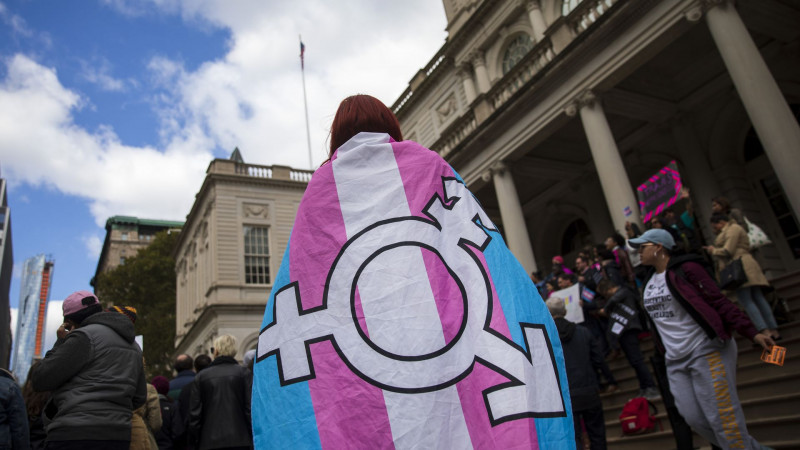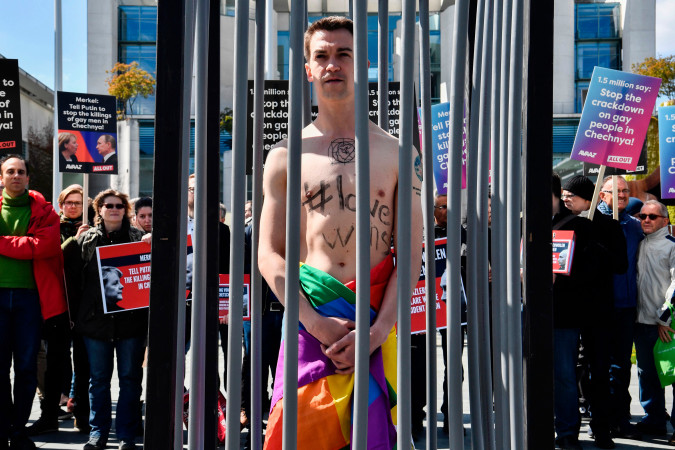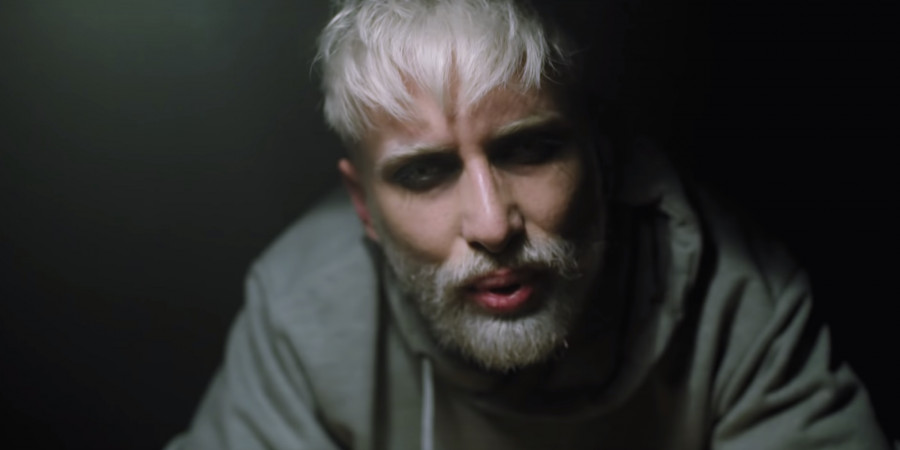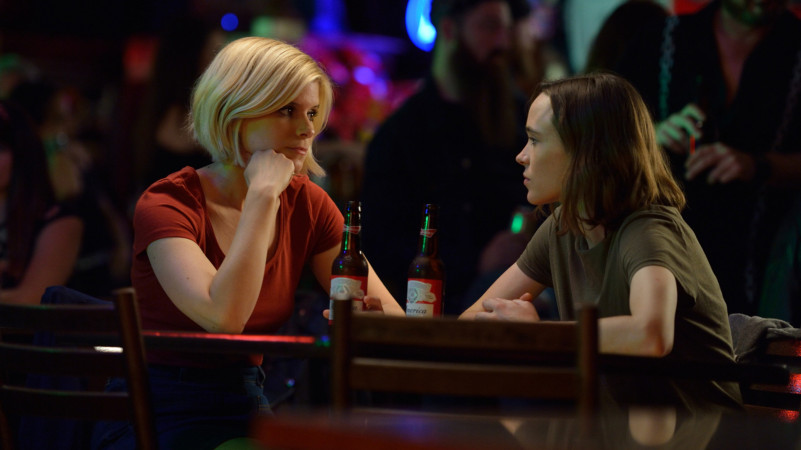"I am against war because…"
"I am against war because…" - war through the eyes of a female journalist
31/May/24
5698
"I am against war because…" - war through the eyes of a female journalist
Aytan Farhadova is an independent journalist from Azerbaijan. Originally from the occupied Zangilan district during the first Karabakh war, the war played a significant role in her life.
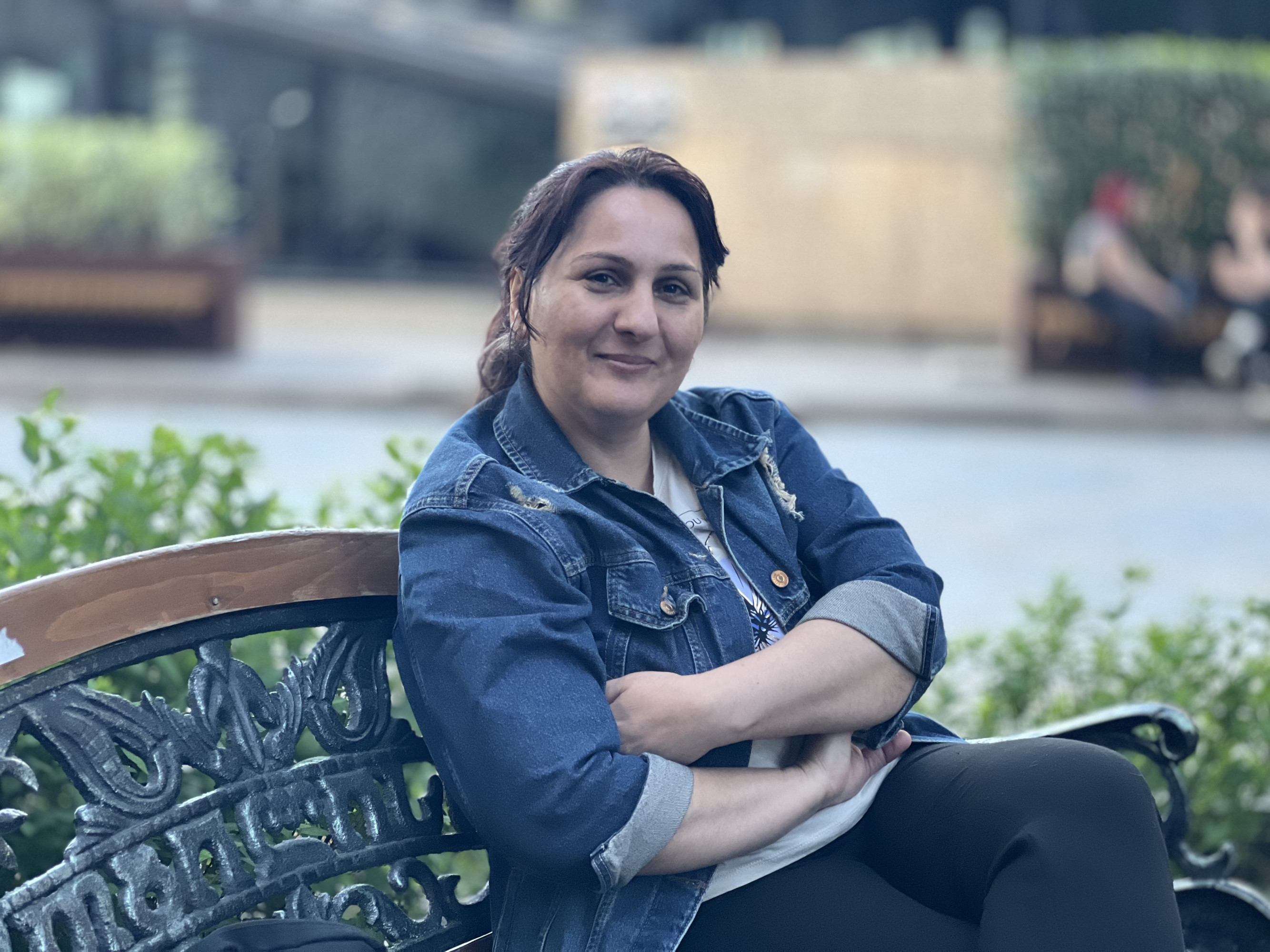
"My personal acquaintance with war dates back to when I was 13 years old. I still remember the occupation of Zangilan.
It was January 1990. My siblings came home from school and said they were beating people in Baku. That's how it all started. Workplaces shut down. My mother started crying, fearing that Qara had been killed. Qara was my uncle, studying at the Medical University. It turned out he was also miraculously saved. When he brought a wounded boy home, bullets grazed him. He said, 'I didn't even realise they were bullets.'
The voice of my mother from my childhood still resonates with me. She always cried, praying, 'May Allah not let them take my brother away...' I grew up with this fear. War brought hunger and economic hardships to our village.
In Baku and other cities and regions of Azerbaijan, tensions arose between displaced persons and the local population. The derogatory sounding term 'refugee' was widely used at that time. Psychologically, of course, it harms people. There used to be a village we always visited, but we couldn't go there anymore. We lived in Sumgayit, and every time someone's body was brought home, we experienced that stress with them. There were many martyrs in our building."
Aytan Farhadova says that she does not like to divide the effects of war by genders, male, female, or child. However, the events she directly witnessed prove that while men face difficult situations in war, women left behind also suffer in different ways.
"I knew a woman who faced incest after the war. Her close relative was sexually assaulting her. She always blamed the war for it. She said if there hadn't been a war, we wouldn't have left our home. We became displaced, and she knew that everyone went to work, no one stayed at home..."
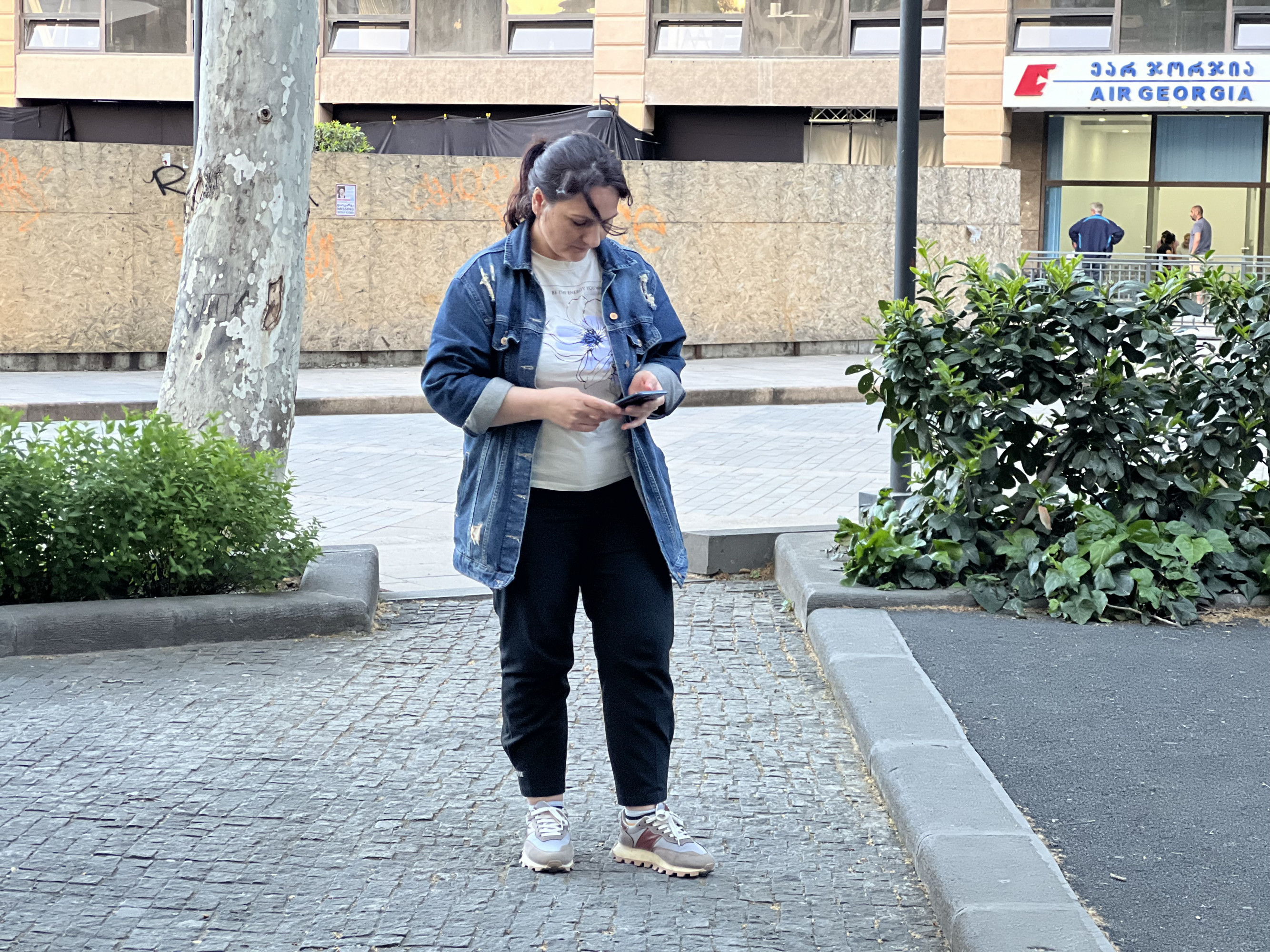
War stereotypes
My conversation partner remembers her school years: "I had a classmate who showed me pictures and said this boy was my fiancé. After her fiancé became a martyr, she swore she would never marry. I believe that girl never started a family. She was deeply traumatised. We witnessed the same story in the second Karabakh war. There are brides who have weddings, yet they still live in the same house.
You see, men attach certain attributes to women to say she is an honourable, she is a 'martyr's spouse.' This is not honour, it means killing a person while they are alive. I agree that one can love someone deeply, share a life with them, but if that person dies, you have no right to kill the one left behind. Instead of attaching such attributes to these people, psychological support is needed."
Aytan Farhadova says she has met many war veterans and interviewed them during her journalistic career.
"One said that 300 bullets were fired into an enemy soldier's body. He didn't realise he was dead. Everyone considered him a hero. But this event traumatised him so much that he never wanted to participate in any war again."
According to my interviewee, both sides must understand that war is a crime.
"I am against war because I have written more on the subject of conflict resolution, I have seen more displaced persons.
Once I was coming from Sumgayit to Baku, an old woman was sitting next to me. She was a displaced person. She said, 'I wish they had killed me by one of those rivers; I wouldn't have suffered like this.
They took away their homes and occupations from these women aged 50-60. Many of them changed their lives a few years after coming from the district to the city. They were forced to live in dormitories in the city. I know several women from our village who were diagnosed with blood cancer. Because suddenly conditions, environment, nutrition, psychological-social conditions changed. In the village, their homes belonged to themselves, they didn't owe anyone gratitude. They were busy with their own work, had established their businesses, and had many vineyards, gardens. They even produced their own cheese and vegetables. These are things you acquire without owing anyone gratitude. In the city, they were forced to see each other in a narrow circle, live in cramped rooms, unemployed."
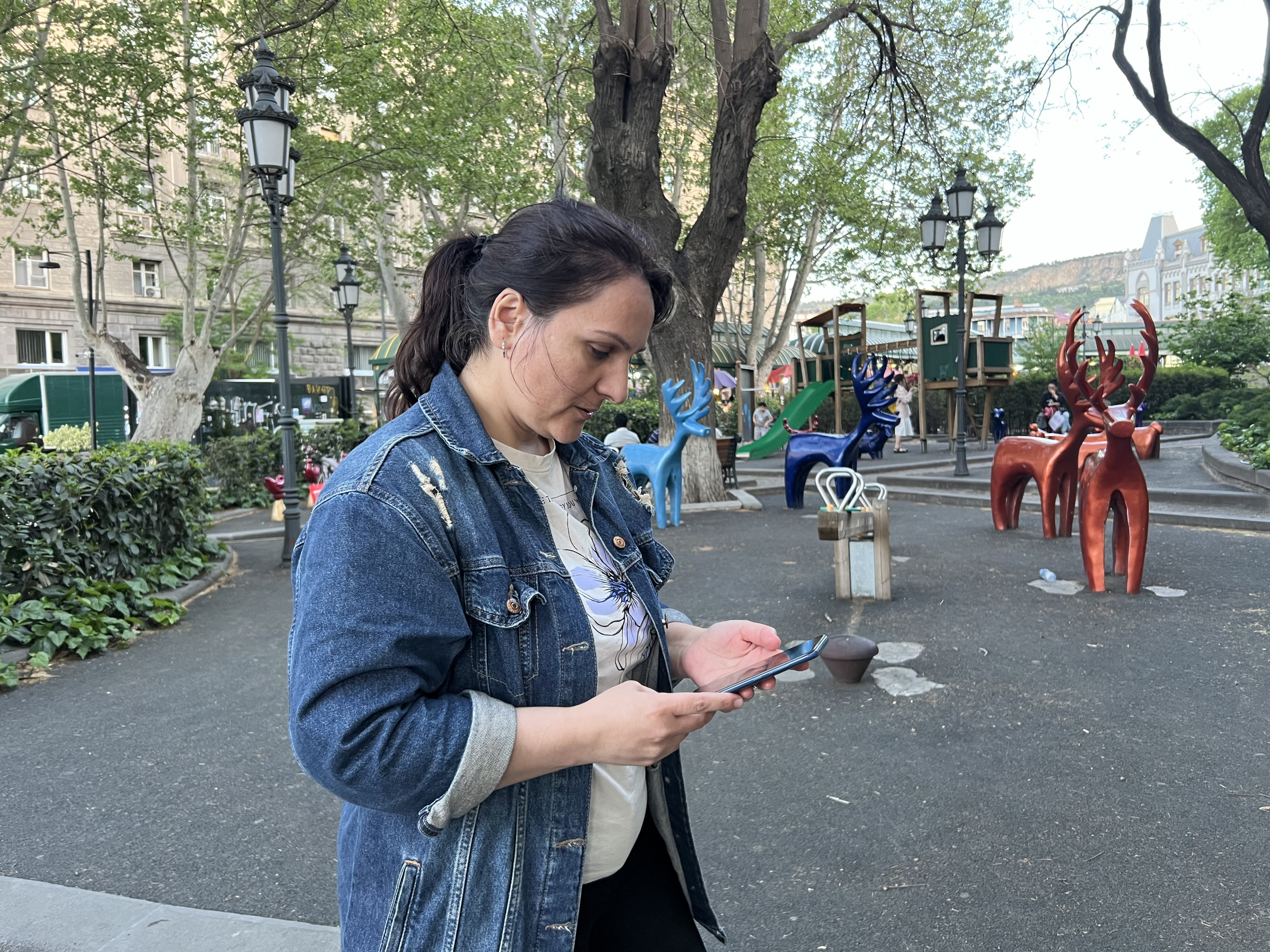
"I work for the people, not for the government"
In April 2016, after four days of fighting between Azerbaijani and Armenian forces on the contact line, Aytan Farhadova collected information about the Azerbaijanis killed in those clashes.
"I tried to interview each family member. I will never forget what the mother of Mushfig said. She said, 'What hurts me the most is that we only had one table, we would eat on it, iron clothes. We had only one small backgammon board, he would put it on his knees and write his lessons on it. Mushfig was admitted to university with 700 points, and graduated with high grades. I lost my son, whom I raised with such difficulty, to the war."
She says that she often cannot approach the families of martyrs when trying to interview them. As a reason, she shows that, whether she wants it or not, she starts crying with her interviewees, unable to meet the demands of her profession.
"We, together with my colleagues, used to work on 'Post-traumatic syndrome among military personnel after the war.' Many of my interviewees were women. Many of their spouses had just returned from the war. Their children would say, 'I wish our father had died in the war.' War damages people so much that they are lost both for themselves and for society.
Another topic I worked on was 'Doctors working during the second Karabakh war.' I found a doctor named Fakhri. He is from Lachin, works in Turkey, and volunteered to go to the war zone as a doctor. He said we lose very talented young people from both sides. Both Azerbaijanis and Armenians. The families of soldiers would call him and ask if their child's legs were intact? He couldn't even say that their legs were already amputated. Later, the doctor himself began to seek psychological help.
Working on all these topics is very difficult both as a journalist and as a citizen of Azerbaijan. You know that the government's accountability to the public is zero. As a journalist, many of our questions remain unanswered. Can we question the Ministry of Defense today? Who do we address our questions to? I am a journalist, for me, human life is everything. I work not for the government but for the people. But my questions remain unanswered."
Prepared by: Sevgi Ismayilbayli
Powered by Froala Editor
